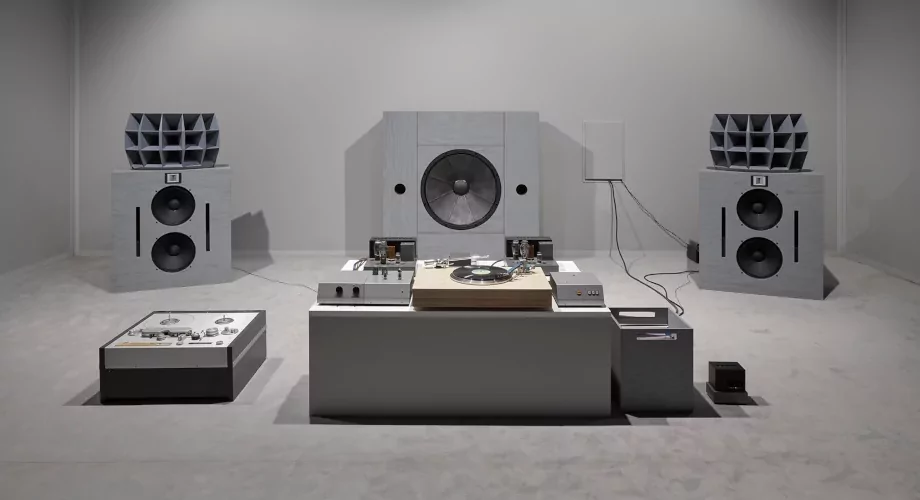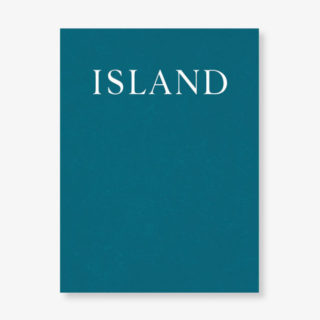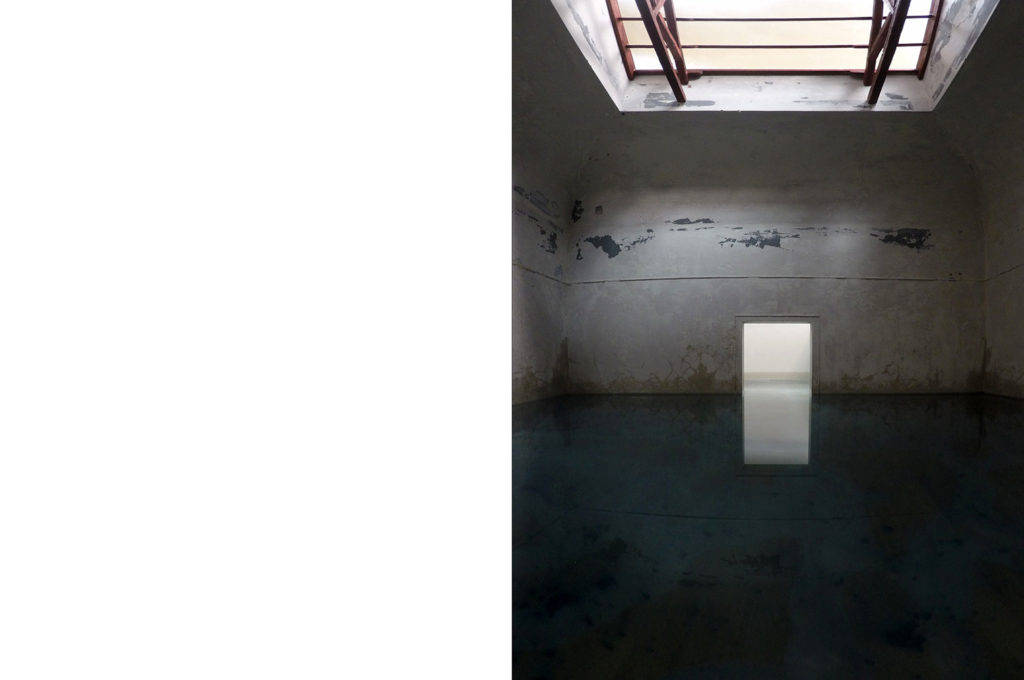Published on
May 11, 2018
Category
Features
The two trail-blazing electronic composers reflect on the intentions, processes and influences behind their music.
The Internet has killed the epistolary form. Diaries replaced by tweets, letters usurped by email threads, Blue Notebooks lost in an ocean of digital ephemera. Perhaps, at some more innate level, communication with others has been replaced by communication with both everyone and no-one.
It’s this sense of considered connection which underpins Max Richter and partner Yulia Mahr’s ‘Sounds and Visions’ festival at the Barbican this weekend, which, in their words “sums up one of our central concerns – that creativity exists as a social project that can illuminate the lives of individuals and society as a whole, and that art exists beyond all boundaries.”
Alongside a curated selection of film and video projects, spanning the musical worlds of Ornette Coleman, Grouper and Meredith Monk, a special programme of musical events will take place, beginning with Richter and The 12 ensemble’s Infra, Jlin and Kaitlyn Aurelia Smith, who recently provided a remix of Richter’s Sleep.
It’s in this social spirit of collaboration that Smith engaged with Richter for this feature – an electronic epistolary article of sorts, in which modular synthesist and German composer interviewed each other from across the world to unpack their creative processes, influences and relationship with nature.
Kaitlyn Aurelia Smith: When you compose, do you anticipate what is being created, are you in a flow state exactly in sync with the creative process, or delayed as if watching it happen?
Max Richter: I think that every project has each of these states at some point in its evolution. Overall my aim is to get a dialogue happening between my conscious processes and what I think of as the intentionality of the musical material. I feel that the process of composing is like a process of uncovering at some level.
Do you have specific processes in your own work flow? What is it about an idea that makes you feel that it is worth continuing with?
KAS: I like that! I agree, I feel like it can sometimes feel like alchemy and sometimes like archeology depending on which way I am looking at. In general both ways of looking at it are relevant for me – I believe in compassionately and patiently watching each idea like a parent would watch their child go through many different transformations and attempts or sometimes they gracefully unfold in a very natural way. I have never abandoned a creative idea – some just require more patience of me. I made a decision a long time ago to only offer unconditional love to creativity.
Do you think you could communicate what you are trying to communicate with music using words? Do you know what you are trying to communicate, or is it a discovery process for you that you understand in hindsight?
MR: I think that part of the reason I compose is that it is a way of talking about things that can’t easily be put into words. Music is a language that has a weird relationship with “meaning” – when we hear something that connects to us we feels spoken to in quite a specific way; it is very one-to-one, and yet the exact meaning is often difficult to pinpoint. On your point about understanding a piece in hindsight… Yes that sometimes happens, but that is still quite a subjective situation – actually more often I get a clearer sense of what I’m doing once other people hear it. The score is a theory you test in the laboratory of the audience’s mind!
Do you feel like your work conveys specific intentions beyond the sounds themselves? Is something like that even possible from your point of view? How do you see your own voice? Is it an instrument for you or do you see it abstractly?
KAS: That is a great analogy. I try and put an intention behind each sound. Sometimes I have one large intention for the whole piece and trust that my subconscious will help me find the right characteristics to tell the story. I see all instruments as an extension of the voice – so if I am unable to communicate it through my voice I then use other instruments to help – and since I love the feeling of community I often try and facilitate sound communities.
When I listen to your music I always experience ripples like I am watching and feeling the beginning of rain dropping on water. It is one of my favourite things about your music – you create and hold space to experience the ripples of cause and effect.
Do you have a vivid memory or moment in your life that implored you to make the music you make? If yes, is it a North Star or does it change album to album?
MR: The simple answer to this is that I compose as a way of figuring out how to be a person. I think very many artists work out of the same instinct; life is a puzzling thing, and creative work is a way to relate to it, and so we generate a temporary order out of the fuzziness that surrounds us. Perhaps this is a kind of wish fulfilment? A piece of music is, in a way, a self-contained idealised universe where things make sense which, as we know, is not the case in real life.
Where does your love of music come from? Do you have to do it? Could there be another practice that fulfils the same function in your life?
KAS: Wow beautiful response. That really resonates with me.
My love of music comes from my love of listening. Sometimes I spend more time listening than making music, even when I am making it – I feel like I am more just listening and doing the actions that help others hear what I am listening to.
Nothing else in my experience offers a connection to being the listener, the doer and sharing with others like making music. To me music is the kindest form of trying to whole-heartedly connect.
Do you have a constellation of heroes and aspirations that you frequently look to? Whether they are people, senses, experiences, objects etc…
MR: I do. I have always been a huge reader, especially of fiction and poetry. I love and rely on the work of many artist to get me from A to B, whether it’s Bach, Schubert, Keats, Joyce, Woolf, Anne Carson, Talk Talk, Machaut, Xenakis, Mahler or Dylan, these things make a huge difference to my waking hours. Having moved out of Berlin into the middle of nowhere recently, I have come to appreciate the powerful effects of being surrounded by nature. It feels like a sort of meta-culture, doing its own thing on a grander scale, while we rush about, occupied with our little lives.
What role does the natural world play in your work? How do you relate to your instruments ? Do they feel like they have personalities? What makes you reach for a specific instrument?
KAS: Nature has always been and will always be my main teacher. I first learned to listen in nature. I love creating with analogue synthesizers because it allows humans to sculpt electricity which is a beautiful and powerful part of nature. I only think of instruments as breath that is in different containers or bodies – There are many different ways to breathe that communicate different emotions.
Besides music, what do you look to for joy? Does making music bring you joy or is there another word for it?
MR: Joy is part of making music for sure, but it’s a bigger more complex thing to me, more like my primary way to engage with being alive. If I’m sitting in a room then I will have music going around in my head while I’m sitting in a room – ditto basically all other activities.
KAS: What do you look for in music when you are listening to it? Is it there a common thread between what you like?
MR: I like music that feels like the artist is being real and authentically themselves – and that transcends genre and style. I also love well made things, the classicist in me adores beautifully made counterpoint and interesting harmonic structures, while the punk loves gigantic noises.
KAS: 🙂 How do you stay balanced?
MR: I’m not sure I do stay balanced really, but the most important factor here is my 25-year relationship with Yulia, my creative and life partner, and our awesome kids. Aside from this I have a 30-year engagement with Zen practice, which really helps keep things in perspective.
Do you find that creative work aids a sense of balance in your own life, or do the demands of creativity pull things out of shape?
KAS: Creativity is very balancing for me. Touring not so much…
Max Richter and Yulia Mahr’s Sounds and Visions takes place at the Barbican this weekend. Click here to find out more.
The event also coincides with the deluxe reissue of Max Richter’s The Blue Notebooks, which is out now, featuring remixes by Jlin and Konx-Om-Px.







